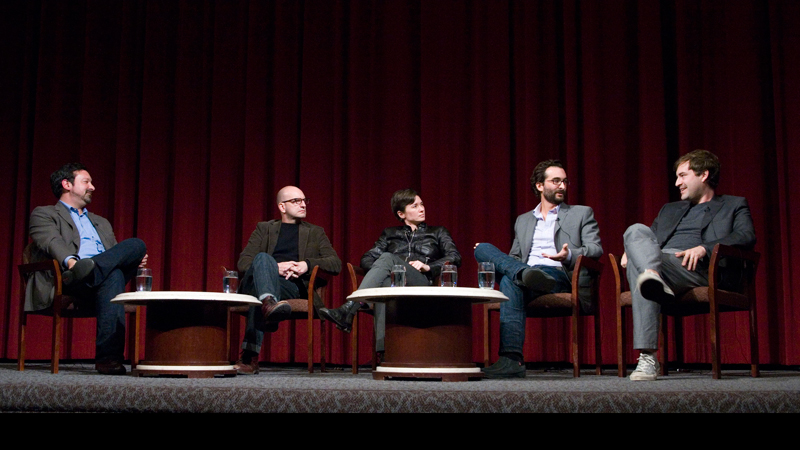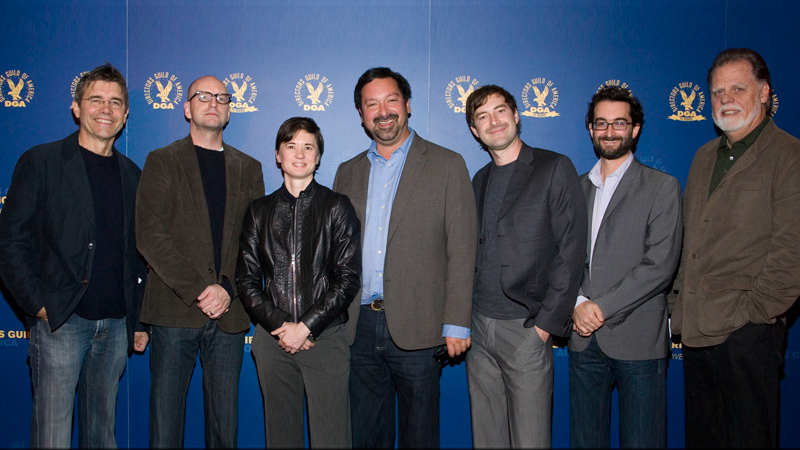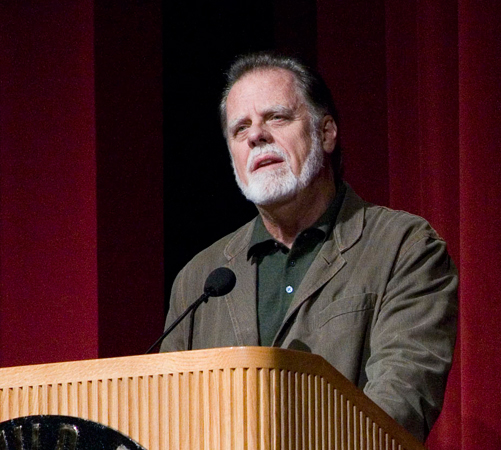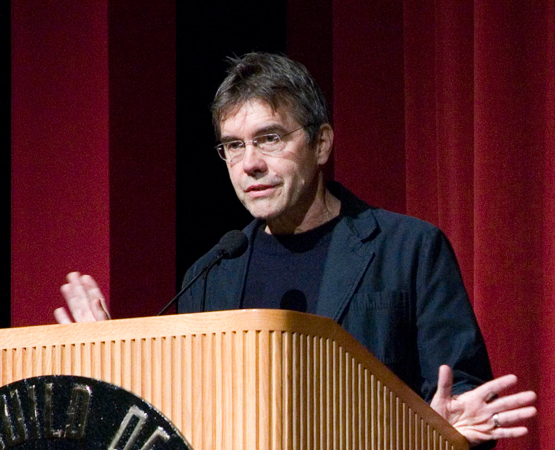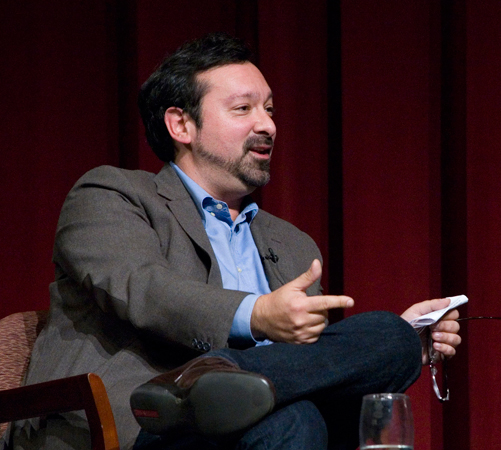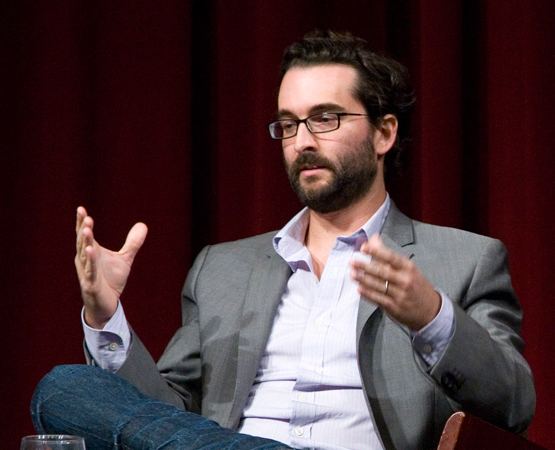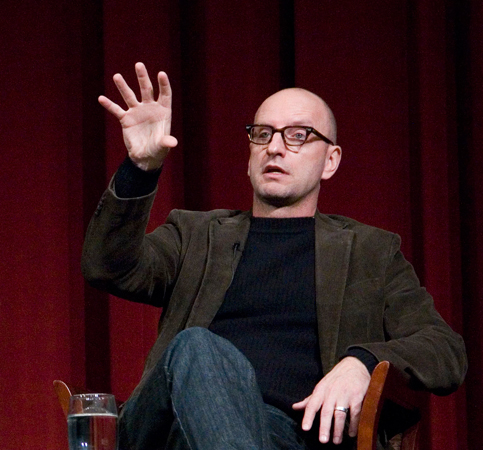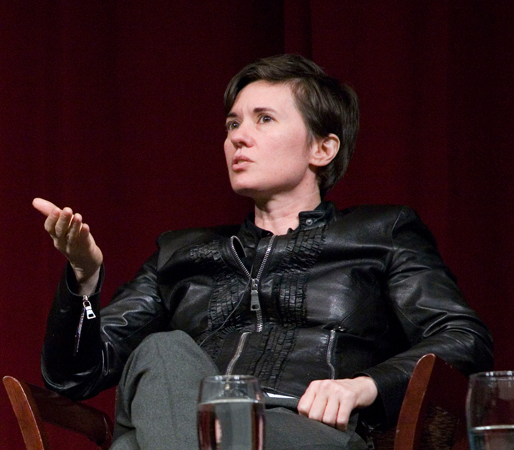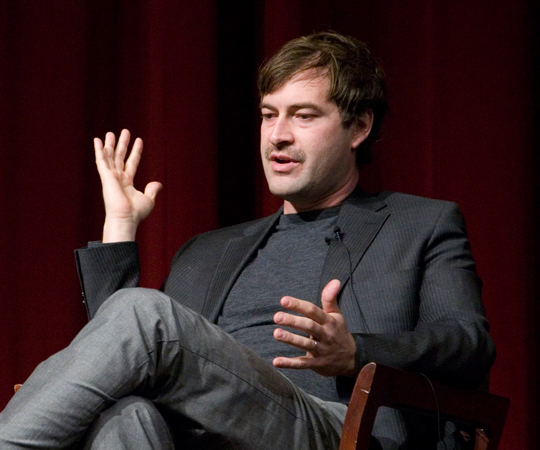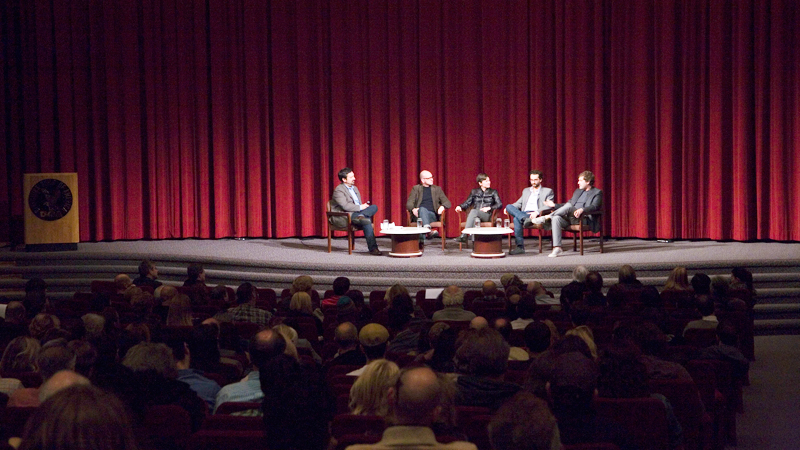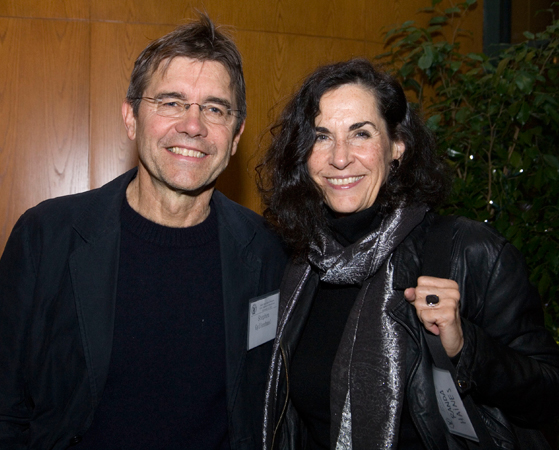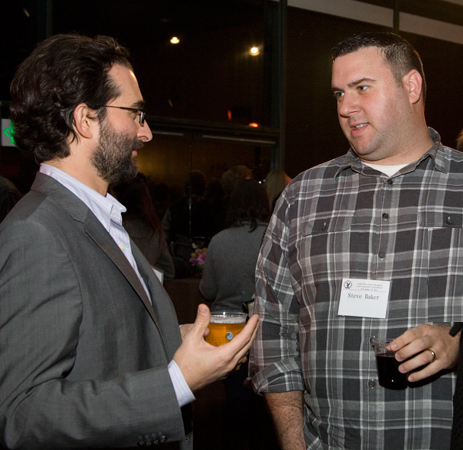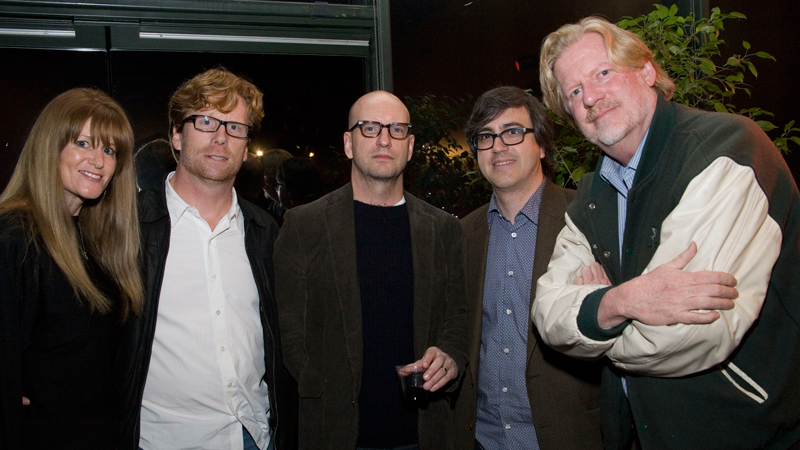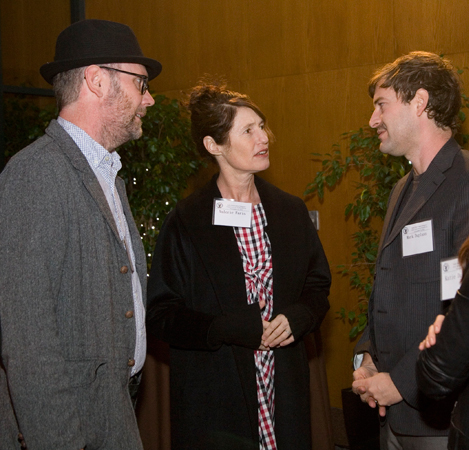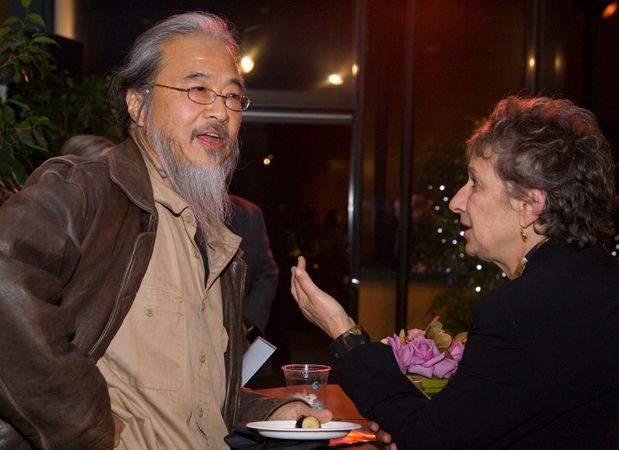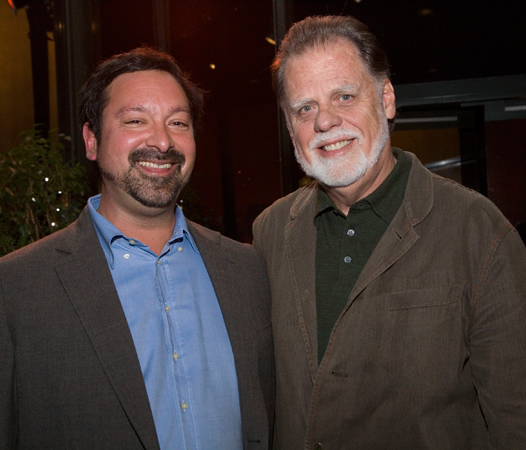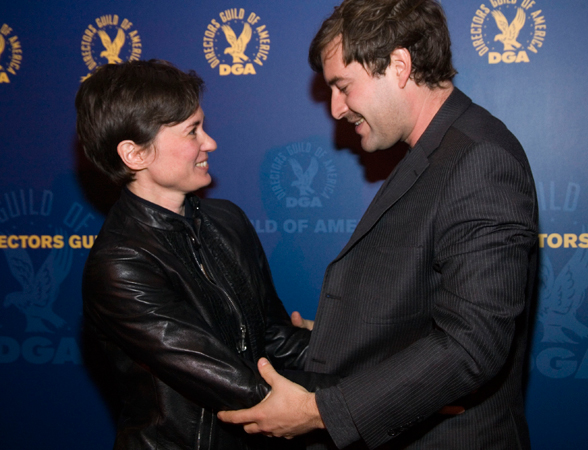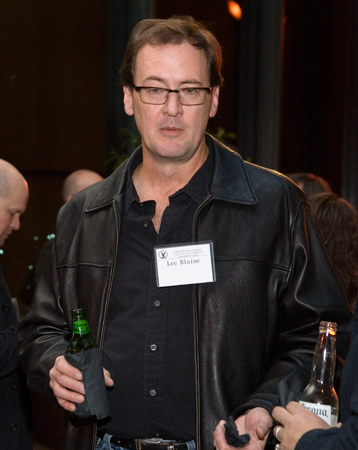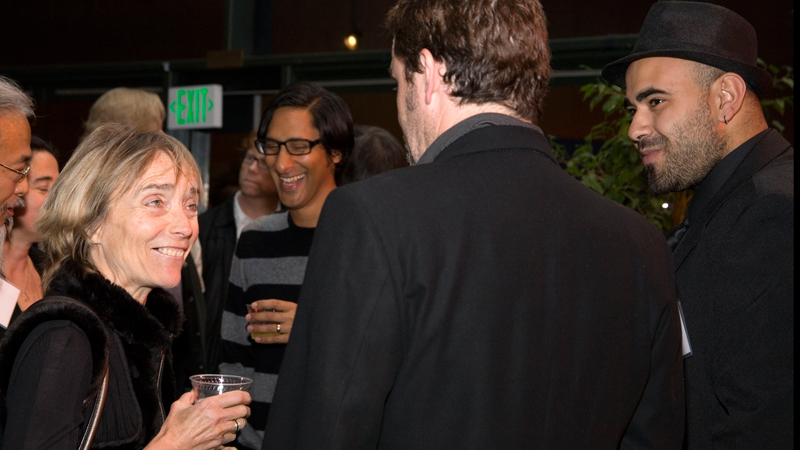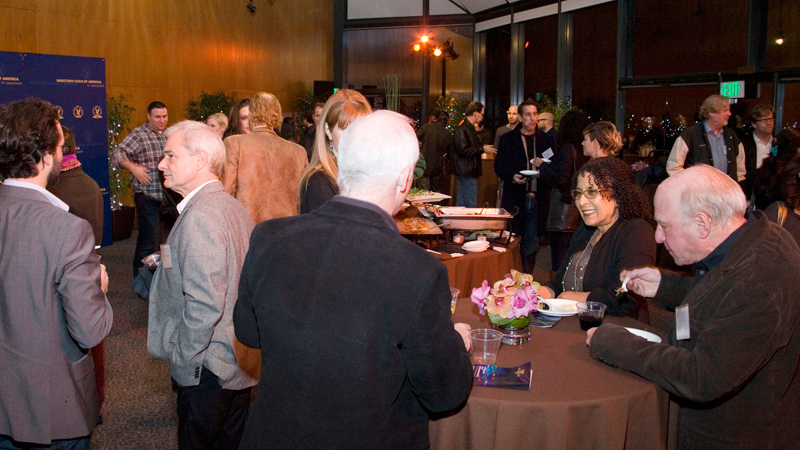Still photos by Byron Gamarro
A celebration of the Guild’s vibrantly creative community of independent filmmakers was the focus on November 12 during the 75th Anniversary event From Cassavetes to Mumblecore: Indie Film Game Changers. Held at the DGA’s Los Angeles Theater, the evening was presented by the Independent Directors Committee West (IDC-w) and featured a panel of directors whose work has made an indelible mark on the independent film landscape ‑ Jay and Mark Duplass (The Puffy Chair), Kimberly Peirce (Boys Don’t Cry) and Steven Soderbergh (Sex, Lies and Videotape) ‑ in an insightful discussion moderated by James Mangold (Walk the Line).
DGA President Taylor Hackford welcomed the capacity crowd with a brief commentary about the genre. “From its humble beginnings to its reinventions and reincarnations indie film by its very nature defies boundaries and refuses limitations,” said Hackford. “Tonight we try and answer the question: just what is indie film?”
Hackford then turned the dais over to IDC-W Chair Stephen Gyllenhaal who spoke about the Committee’s mission to provide a forum for independent filmmakers to connect, share and grow. “It embodies the Guild’s commitment to protecting member rights while providing them with the flexibility to do projects they are passionate about, regardless of budget,” said Gyllenhaal.
The title of the event From Cassavetes to Mumblecore refers to the chronology of the American independent film movement, marking its start with director John Cassevetes who is widely considered to be the father of American independent film, and reaching forward to the latest incarnation “Mumblecore,” which arose at the turn of the 21st century and typically features character-driven pieces, focusing more on relationships than conventional plot points and set in a post-collegiate existence.
Fittingly, Mangold launched the evening’s conversation by introducing a clip from Cassevetes’ groundbreaking 1968 film Faces. “I am absolutely blown away by how visually beautiful Cassavetes’s films are,” said Mangold.
“Can you imagine what it would be like pitching a movie like Faces today,” asked Jay Duplass, citing Cassavetes as an early influence of both he and director-brother Mark. “We were obsessed with the documentary approach. We became interested in bringing a camera to actors instead of bringing actors to the camera; shooting documentary style and letting the action go free.”
The panelists chose a selection of clips from films that had a significant impact on the their careers including Martin Scorsese’s Mean Streets, Terrence Malick’s Badlands, Mike Leigh’s Grown Ups and Chris Smith’s American Movie, and shared why the films spoke to them so deeply. Reflecting on the deep impression made by Mean Streets, Peirce said “It was clear to me that the stories I wanted to tell were reflected in the independent film movement: the indie world allowed emotions to be authentic.”
Mangold asked them to share how they came to be independent filmmakers ‑ whether it was a conscious choice or if they had attempted the studio system first before falling into independent film.
“I wanted to know what ‘directed by’ meant,” answered Soderbergh, who currently serves as National Vice President of the DGA. “Indie film is about control. I loved studio movies, which is why I never defined indie by where the financing comes from. It’s about the directorial approach.”
Peirce explained that Boys Don’t Cry, which was shot in just 30 days, was allowed to be authentic because of the way it was made, the budget limitations becoming part of the film’s aesthetic.
A struggle of an entirely different nature faced the Duplass brothers. “We didn’t have to worry about financiers taking our film away,” said Mark Duplass, “because our financiers were our parents. Our issues and struggles were all internal ‑ were we actually good enough to do this?”
The Sundance Film Festival featured prominently in the evening’s conversation as each of the panelists’ first features ‑ Soderbergh’s Sex, Lies and Videotape, Peirce’s Boys Don’t Cry and the Duplass brothers’ The Puffy Chair – found success there. After screening a clip from each film, the panelists shared their struggles to getting those first films made and the vital role Sundance played.
“It wasn’t even called Sundance yet,” said Soderbergh whose 1989 film took the festival by storm and kick-started a revolution in the independent film market. “I had no connections, I knew no one. My attitude was ‘I’m willing to work. It’s going to happen to someone, so it might as well happen to me.’ I thought of Sex, Lies as my demo tape. The experience was surreal. Sundance was instrumental to gaining credibility.”
A decade later, Sundance was firmly established as not only a festival for indie films, but an entire institute dedicated to their creation. Peirce’s 1999 film Boys Don’t Cry was a Sundance Lab film. “It gave me the chance to test the material and to protect it. Sundance helped encourage me to stay the course and to do it right.”
The Duplass brothers ‑ whose 2005 film The Puffy Chair is considered one of the earliest examples of the Mumblecore movement ‑ agreed with Peirce’s assessment. “The director needs to have the time to figure out what we’re doing,” said Jay Duplass. “Being an independent filmmaker is a process of discovery.”
Mangold rounded out the discussion by asking the panelists to discuss the rapidly changing indie film landscape, as well as the effects of advances in technology on the theatrical experience itself. Speaking of the peaks and valleys that make up the world of indie film, Soderbergh acknowledged the difficulty of even getting a film seen. “As a result it is difficult to monitor the exclusivity we used to have with film. But I remind myself that right now someone somewhere is making something that will revitalize the indie film movement. It will find its way back.”
